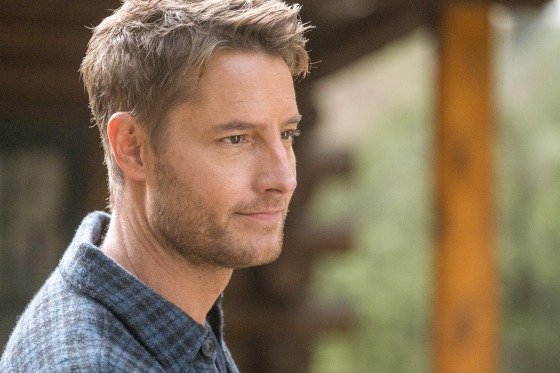
How Hartley Became One of the Most Resilient and Versatile Actors on the Small Screen
Justin Hartley’s name today is synonymous with prime-time success, emotional nuance, and steady star power. But his career didn’t begin on red carpets or critically acclaimed dramas—it began with soap operas, underdog auditions, and years of steady, sometimes unglamorous, work. Over two decades in the industry, Hartley has emerged not just as a familiar face on television, but as one of the medium’s most quietly consistent and transformative figures.
The Soap Opera Years: Learning the Craft in the Trenches
Hartley’s professional acting debut came in 2002 with NBC’s long-running daytime drama Passions, where he played Fox Crane, a charming yet tormented member of a wealthy and dysfunctional family. At first glance, it was a classic soap opera role: romantic, mysterious, and occasionally over-the-top. But to Hartley, it was a formative experience.
“I’ll always credit Passions with teaching me the work ethic,” Hartley said in a retrospective interview. “Soap operas don’t slow down for anyone. You’re memorizing pages and pages of dialogue every night, and the next day you have to deliver. You learn to be prepared, to adjust, and to stay sharp.”
In that demanding environment, Hartley developed his technical skills, camera awareness, and emotional agility. Though soap operas are often dismissed as melodramatic, they were the perfect training ground for an actor who would later thrive in emotional-heavy narratives.
A Superhero Detour and Lessons in Pacing

In 2006, Hartley landed the role of Oliver Queen/Green Arrow in Smallville, introducing him to a new audience and genre. The role was significant—not just for its action and fan base, but for how it expanded Hartley’s professional range. He combined physicality, charisma, and subtle vulnerability to portray a billionaire vigilante who struggled with morality and loyalty.
Though his turn on Smallville was not his first foray into the superhero world (he had previously been cast in a failed Aquaman pilot), it marked the beginning of a career-long ability to adapt to different tones and character types.
“I wasn’t just trying to be cool with a bow and arrow,” he joked years later. “What interested me was who Oliver was behind the mask—someone lonely, someone trying to do good but often falling short. That internal conflict is what makes any character interesting.”
This Is Us and a Career-Defining Role
Hartley’s real breakthrough came in 2016, when he was cast as Kevin Pearson in NBC’s This Is Us. The role would redefine not only his career but also his public perception. Kevin began as a seemingly superficial actor struggling with identity, addiction, and purpose—but as the seasons unfolded, Hartley gave the character surprising depth and heartbreaking humanity.
His performance across six seasons earned widespread praise for its authenticity and emotional complexity. Viewers watched Kevin grapple with loss, love, fatherhood, and a constant search for belonging. It was a mirror to Hartley’s own evolution as an artist—no longer just the handsome supporting player, but the emotional anchor of a show that specialized in raw, often painful truths.
“People saw me differently after This Is Us,” Hartley said. “They saw that I could handle the deep emotional material, that I wasn’t just ‘TV handsome.’ And honestly, I saw myself differently, too.”
The role earned him a Critics’ Choice nomination and positioned him as one of network television’s most respected male leads. But more than the accolades, it gave Hartley a sense of purpose. “When people tell you they saw themselves in Kevin’s pain or journey—that’s when the work really matters.”
Tracker and the Reinvention of the Leading Man
After This Is Us wrapped in 2022, Hartley didn’t retreat or slow down—he reinvented himself again. In 2024, he returned to television as the star and executive producer of Tracker, a CBS action-drama based on Jeffery Deaver’s The Never Game. As Colter Shaw, a lone-wolf survivalist tracking missing persons, Hartley blended intellect with intensity, channeling a darker, more enigmatic energy than audiences had seen before.
The role signaled a shift: Hartley was no longer just the emotional centerpiece of ensemble dramas. He was now a leading man who could command an hour-long series with grit and charisma.
Critics praised his turn as Colter Shaw as “quietly magnetic” and “grounded in emotional realism,” with the Los Angeles Times writing that “Hartley has grown into the kind of actor who can carry a series without ever needing to shout for attention.”
As executive producer, Hartley was also instrumental in shaping the show’s tone, pushing for character-driven episodes, and spotlighting guest stars whose performances added depth to the narrative. His behind-the-scenes influence marked another turning point in his career: actor-turned-creative leader.
The Legacy So Far
What makes Hartley’s journey in television so compelling is not a single breakout moment, but his resilience and evolution. He has moved fluidly between genres—soaps, superhero sagas, heartfelt dramas, and action thrillers—without ever losing his sense of authenticity. He’s not a performer who needs to dominate the spotlight; he’s one who enriches the story, no matter the format.
For younger actors, his trajectory is proof that a slow build can lead to longevity. “You don’t always get the dream role right away,” Hartley says. “But if you keep showing up, keep caring about the work, the right roles will come.”
With new projects in both scripted drama and true crime docuseries on the horizon, Justin Hartley is far from finished. But he has already carved out a place for himself in television history—not as a flash-in-the-pan sensation, but as a craftsman committed to growth, truth, and the long game.
